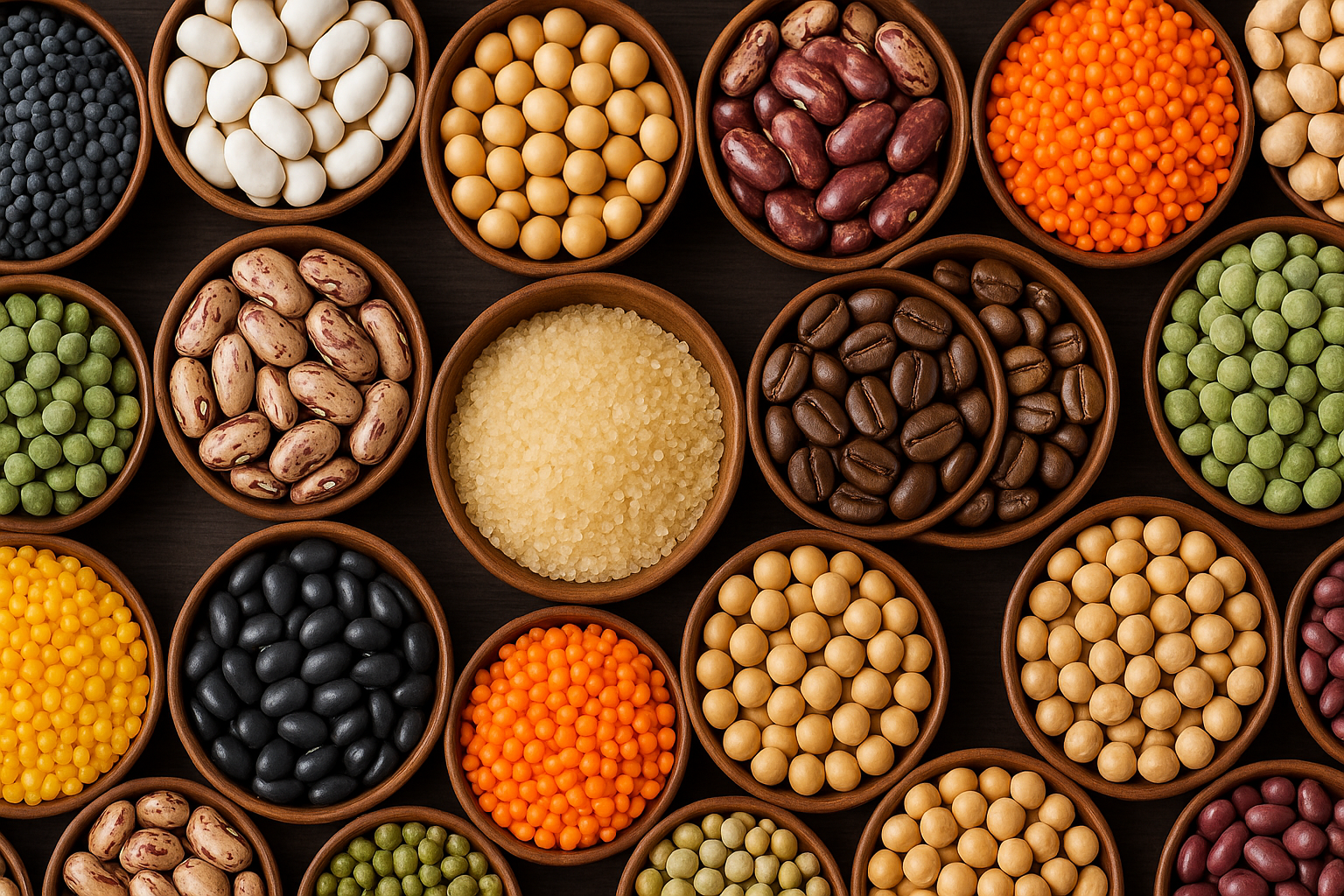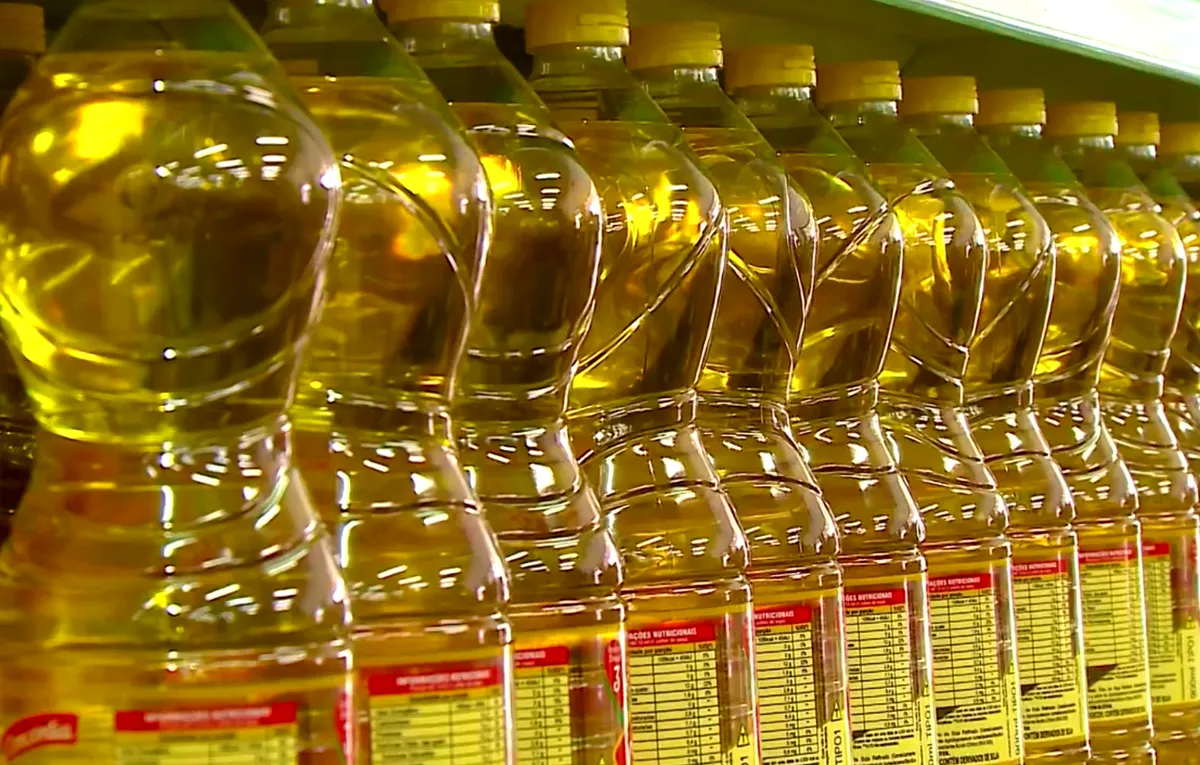
The global market for raw brown sugar has seen significant growth, driven by the demand for products that can be refined and processed into various forms of sugar. Brazil, as one of the world’s largest producers and exporters of sugar, plays a vital role in this sector. This article examines the profile of companies importing brown sugar from Brazil, highlighting their characteristics, market trends, and factors influencing their import decisions. Based on market data and recent studies, the aim is to provide a detailed and substantiated view to strengthen Mello Commodity’s credibility among sugar importers.
Contents
1.1 Brazilian Production and Export
Brazil is a world leader in sugar production, with a significant share of the global market. In 2022, Brazilian sugar production reached approximately 38 million tons, with around 26 million tons exported. Although most of this production is refined and raw sugar, brown sugar also represents an important segment due to the growing demand from companies needing raw material for processing.
1.2 Global Trends
Brown sugar is highly sought after by companies with refining and processing capabilities, allowing them to produce different types of sugar, such as refined, crystal, and liquid sugar. The growth of the global food industry and the diversification of sugar-derived products are factors driving the demand for brown sugar.
2.1 Types of Companies
Companies importing brown sugar from Brazil can be classified into different categories based on their size and market segment:
– Large Refineries and Mills: Companies like Tereos and Südzucker are examples of major players in the global sugar market. They import brown sugar in large volumes for processing in their own facilities, converting it into refined, crystal, and other sugar products.
– Food and Beverage Industries: Food and beverage companies that use brown sugar as a basic ingredient in their recipes are important to ensure a constant and cost-effective supply.
– Distributors and Wholesalers: These companies purchase brown sugar to redistribute to smaller refineries and food product manufacturers, playing a crucial role in the sugar supply chain.
2.2 Geographic Location
The location of brown sugar importing companies is primarily concentrated in regions with high processing capacity and significant demand for refined sugar products. Key regions include:
– Europe: Countries such as Germany, the United Kingdom, France, and the Netherlands are major importers, thanks to their robust refining infrastructure and high demand for refined sugar in their food industries.
– North America: The United States and Canada are significant markets, driven by large industrial refining capacities and diversified sugar products demand.
2.3 Characteristics and Needs
Companies importing brown sugar generally share common characteristics:
– Refining Capacity: They require adequate infrastructure to process brown sugar into its various refined forms, such as white, crystal, and liquid sugar.
– Certification and Quality: They seek suppliers with quality certifications, ensuring that the imported brown sugar can be transformed into safe and high-quality products.
– Stability and Reliability:They value suppliers who offer consistent product quality and timely deliveries, facilitating continuous refinery operations.
3.1 Price and Competitiveness
The price of brown sugar is a decisive factor for importers. The sugar market is highly competitive, and price fluctuations can significantly influence purchasing decisions. Brazil’s production efficiency allows the country to offer competitive prices, making it an attractive supplier.
3.2 Product Quality
The quality of Brazilian brown sugar is widely recognized. The purity and consistency of the product are important attributes that influence importer preference. Good agricultural practices and advanced production processes contribute to maintaining the superior quality of Brazilian sugar.
3.3 Commercial Relations and Logistics
Strong commercial relationships and efficient logistics are essential for successful exports. Transit time, delivery reliability, and customer support are critical aspects. Brazilian companies that can offer a complete service, from production to delivery, have a significant competitive advantage.
3.4 Regulations and Tariffs
Import regulations and tariffs also influence companies’ decisions. Countries like the United States and European Union members have strict regulations on the quality and origin of food products. Compliance with these regulations is crucial to avoid trade barriers and additional costs.
4.1 Partnership with Large Refineries
A success story is the partnership between a Brazilian brown sugar mill and a large refinery in Germany. The mill managed to supply high-quality brown sugar, meeting the refinery’s strict specifications. This partnership resulted in a significant increase in exports and the consolidation of market presence in Europe.
4.2 Expansion into the North American Market
Another success story involves a cooperative of brown sugar producers in Brazil that secured an agreement with a network of refineries in the United States. Through this agreement, the cooperative expanded its exports, benefiting from the high demand for refined sugar in the North American market.
5.1 Challenges
– International Competition: Besides Brazil, countries like India and Thailand are also major producers of brown sugar. Competition on price and quality is intense.
– Climatic Variations: Sugarcane production is highly dependent on climatic conditions. Droughts or excessive rains can affect the harvest and, consequently, export capacity.
5.2 Opportunities
– Emerging Markets: Emerging markets in Asia and Africa are showing an increased demand for refined sugar products, representing an opportunity to expand brown sugar exports.
– Technological Innovations: Investments in agricultural technology and production processes can improve the efficiency and quality of brown sugar, offering a competitive advantage.
The profile of companies importing brown sugar from Brazil is diverse, encompassing large refineries, food and beverage industries, and distributors. These companies value the quality, refining capacity, certification, and reliability of Brazilian suppliers. Despite challenges, Brazil holds a privileged position in the global brown sugar market due to its production capacity and quality reputation.
For Mello Commodity, understanding the needs and expectations of these importers is crucial to strengthening its market position and building lasting commercial relationships. Investing in certifications, sustainable practices, and logistical efficiency are fundamental steps to ensuring continued success in brown sugar exports.
Emerging opportunities in new markets and the adoption of technological innovations offer a promising path for the expansion and consolidation of Brazil’s presence in the global brown sugar market. By aligning its strategies with importers’ demands, Mello Commodity can not only increase its exports but also strengthen its brand as a reliable and sustainable brown sugar supplier.
References
1. **CEPEA** – Center for Advanced Studies in Applied Economics
2. **FAO** – Food and Agriculture Organization of the United Nations
3. **Südzucker** – Annual Reports
4. **Eurostat** – European Union International Trade Statistics
5. **USDA** – United States Department of Agriculture
6. **Central Bank of Brazil** – Market Reports
7. **Conab** – National Supply Company
Raw Brown Sugar: Unrefined or partially processed sugar retaining molasses, used as feedstock for refining into other sugar types (e.g., white, crystal, liquid sugar).
Commodity: Agricultural or mineral product traded globally, with prices driven by supply and demand (e.g., sugar, coffee, oil).
Trade Balance: Difference between a country’s exports and imports (e.g., Brazil’s sugar trade surplus).
Brazilian Production: Global leader, producing 38 million tons in 2022 (26 million tons exported).
Sugar Refinery: Industrial facility that processes raw sugar into final products (e.g., refined white sugar).
ICUMSA: International standard measuring sugar color/purity (lower values indicate whiter, more refined sugar).
Large Refineries: Companies like Tereos and Südzucker importing bulk raw sugar for in-house processing.
Food & Beverage Manufacturers: Use brown sugar as an ingredient in end products (e.g., snacks, beverages).
Wholesale Distributors: Middlemen supplying smaller processors and manufacturers.
Certifications: Quality standards (e.g., ISO, Fair Trade) required by importers to ensure safety/compliance.
Competitive Pricing: Brazil’s advantage due to production scale and logistical efficiency.
Logistics: Shipping times, delivery reliability, and port infrastructure.
Tariff Barriers: Import regulations in key markets (e.g., EU, U.S.) on origin/quality.
Europe: Germany, UK, France, Netherlands (high demand for refined sugar in food industries).
North America: U.S. and Canada (large refining capacity and diverse sugar product demand).
Emerging Markets: Asia and Africa (growing demand for processed sugar).
Global Competition: India and Thailand as alternative sugar suppliers.
Weather Risks: Droughts or excess rainfall impacting sugarcane yields.
Tech Innovations: Precision agriculture and biofuels to boost efficiency.
German Refinery Partnership: Consistent high-quality brown sugar supply, securing European market share.
U.S. Market Expansion: Brazilian cooperatives securing contracts with North American refiners.
Eco-Friendly Practices: Reduced burning during harvest, biofuels, and certifications (e.g., Bonsucro).
Mello Commodity publishes educational articles that aim to guide importers of agricultural commodities on: Brazilian crops, market information, prices, scams, etc.
Some articles may contain affiliate links that provide access to several SUPPLIER GUIDES for Brazilian agricultural commodities. The commission paid to the Mello Commodity team is used to cover production costs and will not impact the cost of acquiring the material.
If you are interested in negotiating the direct import of sugar, soybeans or yellow corn, simply click on the Quotation menu and send us your order details.

Brazilian, graduated in Marketing, Specialist in Service Management and Strategic Communication.
Important International Negotiator in the commercialization of Brazilian agricultural commodities such as: Sugar, Soybeans and Corn.
Owner of Mello Commdity, she has gained great prominence on the internet in recent years by promoting educational articles for importers of Brazilian agricultural commodities.
 How to Import Agricultural Commodities from Brazil Safely and Profitably
How to Import Agricultural Commodities from Brazil Safely and Profitably Bangladesh Sugar Imports: A Global Success Case Study
Bangladesh Sugar Imports: A Global Success Case Study Coup plotters are everywhere in international trade. Protect your international businesses with the Agricultural Commodities Suppliers Guide
Coup plotters are everywhere in international trade. Protect your international businesses with the Agricultural Commodities Suppliers Guide Oil Exporters in Brazil – Business Opportunities and Global Markets
Oil Exporters in Brazil – Business Opportunities and Global Markets